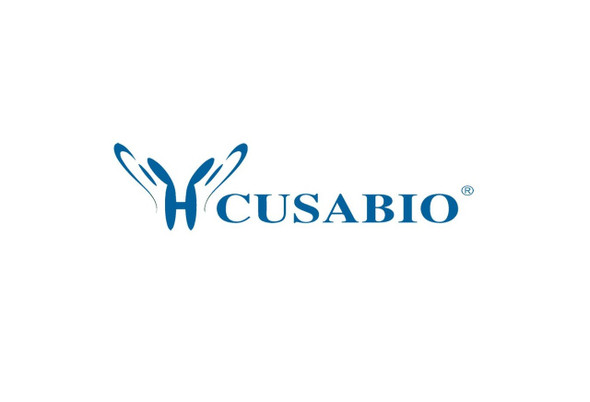Cusabio Mouse Recombinants
Recombinant Mouse Histone H3-like centromeric protein A (Cenpa) | CSB-YP005205MO
- SKU:
- CSB-YP005205MO
- Availability:
- 25 - 35 Working Days
Description
Recombinant Mouse Histone H3-like centromeric protein A (Cenpa) | CSB-YP005205MO | Cusabio
Alternative Name(s): Centromere protein A ;CENP-A
Gene Names: Cenpa
Research Areas: Others
Organism: Mus musculus (Mouse)
AA Sequence: MGPRRKPQTPRRRPSSPAPGPSRQSSSVGSQTLRRRQKFMWLKEIKTLQKSTDLLFRKKPFSMVVREICEKFSRGVDFWWQAQALLALQEAAEAFLIHLFEDAYLLSLHAGRVTLFPKDIQLTRRIRGFEGGLP
Source: Yeast
Tag Info: N-terminal 6xHis-tagged
Expression Region: 1-134aa
Sequence Info: Full Length
MW: 17.5 kDa
Purity: Greater than 90% as determined by SDS-PAGE.
Relevance: Histone H3-like variant which exclusively replaces conventional H3 in the nucleosome core of centromeric chromatin at the inner plate of the kinetochore. Required for recruitment and assbly of kinetochore proteins, mitotic progression and chromosome segregation. May serve as an epigenetic mark that propagates centromere identity through replication and cell division. The CENPA-H4 heterotetramer can bind DNA by itself (in vitro) .
Reference: Gene structure and sequence analysis of mouse centromere proteins A and C.Kalitsis P., Macdonald A.C., Newson A.J., Hudson D.F., Choo K.H.A.Genomics 47:108-114(1998)
Storage: The shelf life is related to many factors, storage state, buffer ingredients, storage temperature and the stability of the protein itself. Generally, the shelf life of liquid form is 6 months at -20?/-80?. The shelf life of lyophilized form is 12 months at -20?/-80?.
Notes: Repeated freezing and thawing is not recommended. Store working aliquots at 4? for up to one week.
Function: Histone H3-like nucleosomal protein that is specifically found in centromeric nucleosomes. Replaces conventional H3 in the nucleosome core of centromeric chromatin at the inner plate of the kinetochore. The presence of CENPA subtly modifies the nucleosome structure and the way DNA is wrapped around the nucleosome and gives rise to protruding DNA ends that are less well-ordered and rigid compared to nucleosomes containing histone H3. May serve as an epigenetic mark that propagates centromere identity through replication and cell division (By similarity). Required for recruitment and assembly of kinetochore proteins, and as a consequence required for progress through mitosis, chromosome segregation and cytokinesis
Involvement in disease:
Subcellular Location: Nucleus, Chromosome, centromere, kinetochore, Chromosome, centromere
Protein Families: Histone H3 family
Tissue Specificity:
Paythway:
Form: Liquid or Lyophilized powder
Buffer: If the delivery form is liquid, the default storage buffer is Tris/PBS-based buffer, 5%-50% glycerol. If the delivery form is lyophilized powder, the buffer before lyophilization is Tris/PBS-based buffer, 6% Trehalose, pH 8.0.
Reconstitution: We recommend that this vial be briefly centrifuged prior to opening to bring the contents to the bottom. Please reconstitute protein in deionized sterile water to a concentration of 0.1-1.0 mg/mL.We recommend to add 5-50% of glycerol (final concentration) and aliquot for long-term storage at -20?/-80?. Our default final concentration of glycerol is 50%. Customers could use it as reference.
Uniprot ID: O35216
HGNC Database Link: N/A
UniGene Database Link: UniGene
KEGG Database Link: KEGG
STRING Database Link: STRING
OMIM Database Link: N/A









